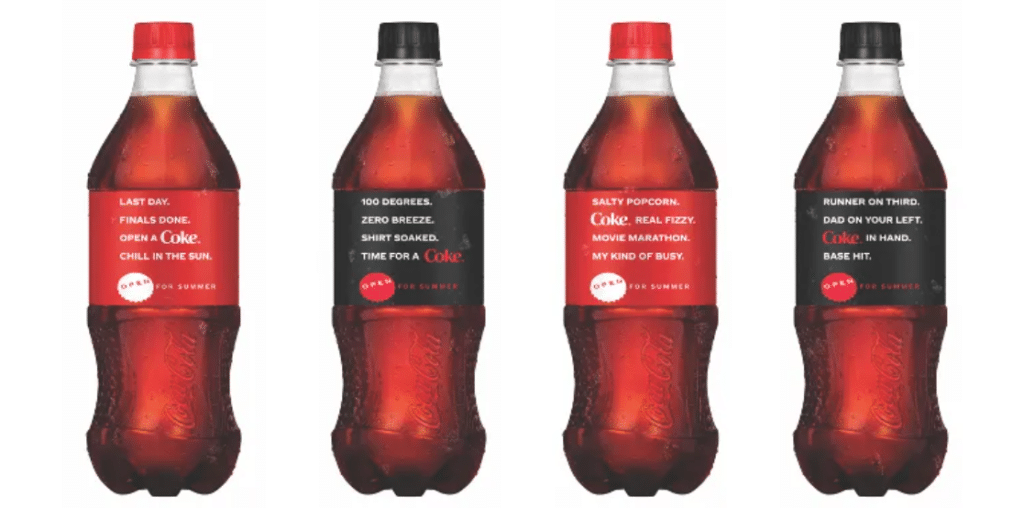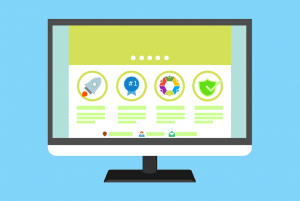Many of the world’s companies focus too much on the Digital Marketing aspects of marketing and don’t invest enough in brand awareness.
While digital is a critical component of marketing, branding is essential for creating real growth at any company. And it operates on an entirely different level than lead generation, so central to Digital Marketing.
Branding functions on a different level of the brain than performance marketing. But it doesn’t take a neurosurgeon to understand these important marketing concepts.
Let’s take a look at why building brand awareness is so critical, and how you can get going building it for your own company.
In this article, we will explore:
- What Is Brand Awareness?
- The 2 Systems of the Brain
- Creating Brand Awareness Takes Time
- The Differences Between Digital Marketing and Branding
- What Is the Purpose of Brand Awareness
- Why Brand Awareness Is So Important
- How Brand Awareness and Digital Marketing Connect
- How to Create a Brand Awareness Strategy
- How Can You Measure Brand Awareness?
- Brand Awareness FAQ
What Is Brand Awareness?
To understand brand awareness, let’s take a look at what branding is and what its main characteristics are.
Brands are “social constructs”
Brands are not tangible things but rather exist as social constructs, not just in the consumer’s mind but also in a company’s business network.
They aren’t static but can slowly evolve, and they are subject to context.
Jenni Romaniuk, the author of “Building Distinctive Brand Assets“, defines a known brand as “a node in memory with other linked attributes and associations”.
The fact that a brand is dependent on memory is a key concept to understand. And just as we don’t have full control of our memory, nor do we control what associations we have with a brand.
Take, for example, Coca-Cola.
What do you associate with that brand? Likely you think of the color red, the logo, and even the font in general.
Perhaps you think of the shape of a Coke bottle, or you may have specific memories that associate Coke with summertime.

The 2 Systems of the Brain
Nobel prize winner, Daniel Kahneman, explains that the brain operates on two separate systems.
The first system is based on instinct and intuition, while the second system is marked by rational thinking.
It may seem as though the vast majority of our brain power goes towards rational thinking, but in actuality, as much as 95% of the information we process goes through system one.
Building brand awareness requires using the first system. Rational thinking simply does not work to create brand awareness, but a more emotion-based approach is required.
This contrasts to Digital Marketing, which is based on rational thinking — for example, a campaign that encourages consumers to buy now or miss the deal.
This example of rational thought stands in contrast to what happens when a consumer is faced with a plethora of brands on a shelf —their decision of which to choose is usually guided by intuition.
Above all else, creating branding awareness means making a brand name memorable.
Jeni Romaniuk explains that brand awareness is the measurement of “How many people are exposed to marketing activity, along with how many people can remember the brand’s name”.
Creating Brand Awareness Takes Time
Another important aspect is that it takes time to develop brand awareness.
While Digital Marketing moves at a breakneck pace, brand awareness can only be achieved over significant periods of time. Think years.
As a result, brand awareness can be very hard to measure, especially when it comes to ROI.
If you do want to try and measure the effectiveness of a brand awareness campaign, it takes a minimum of 6 months of implementation before you would see any effect whatsoever.
The Differences Between Digital Marketing and Branding
Digital Marketing and branding exist in two entirely different domains.
While branding might make use of digital forms of marketing, it is entirely distinct from the lead generation upon which Digital Marketing is so often based.
Another major difference between Digital Marketing and brand awareness is that they target two very different audiences.
Digital Marketing has evolved to become hyper-targeted. To achieve success, it’s necessary to reach people who are ready to buy.
But for brand awareness, you want to reach everyone, those who are ready to buy, along with everyone else who could ever be a potential buyer now or in the future.
Branding is:
- long-term;
- uses intuition and instinct to achieve results;
- emotion-based;
- influences the future;
- online and offline;
- wide reach.
Digital Marketing is:
- short-term;
- uses rational thinking to achieve results;
- persuasion-based;
- gets results now;
- mostly online;
- hyper-targeted.
What Is the Purpose of Brand Awareness
Undoubtedly, the most important aspect of brand awareness is its potential for long-term growth.
While Digital Marketing does wonders to build profits in the short term, it only operates on short-term growth.
A successful campaign will produce results at activation, but once the campaign ends, so do the results.
By building brand awareness, a company is investing in long-term growth over time.
While there will be no immediate ROI, or even an easily measurable ROI ever, with time, when implemented properly, brand awareness is what creates long-term steady growth for a company.
Brands are characterized by so-called distinctive brand assets.
These could be a logo, a shape, a color, a jingle, a font, a song, a character, and much more.
Some examples of the brand’s distinctive assets that you would undoubtedly recognize are the yellow arches of the McDonald’s logo, the shape of Nike’s swoosh, the color of Tiffany’s box, and the mascot, the Michelin man.

For branding, distinctive assets operate as a sort of mental shortcut of identification, triggering the brand in the mind of the potential buyer.
Distinctive assets are created by being very consistent over a long period of time.
Why Brand Awareness Is So Important
Brand awareness is important because it enables brand growth. To do so, you need to target a wider audience.
While for most companies, it is not the case as it is with a company like Coca-Cola — which wants to reach everyone on the planet with its brand awareness — it still requires reaching a much larger audience than with Digital Marketing.
Take, for example, a car manufacturer. A person is only in the market to buy a new car every 5 to 10 years, limiting the audience of current potential buyers.
But with branding awareness, a car company does not just want to reach those in the market to buy a new car. They want to reach everyone who might ever buy a car.
Ideally, they are making those memory associations with potential customers five years before they are in the market to buy a car, so when the person is ready to buy, the car brand is firmly established in their mind.
A key question of brand awareness is how to influence people who are not in the market today.
It is only by targeting potential buyers who are both in-market and out-of-market that a company can achieve growth.
One of the biggest mistakes that companies make is becoming too dependent on organic marketing. This is great for reaching established fans, but it will fail at attracting new potential markets.
How Brand Awareness and Digital Marketing Connect
While the differences between brand awareness and digital marketing have been a primary topic of this article, it is so important to use these two strategies in tandem.
Branding creates memory structures, and the lead generation campaigns work together with those memory structures.
The initiatives of performance marketing trigger those memory structures.
If a company attempts to achieve results with just Digital Marketing, they are likely to fail — when people don’t know who you are, they won’t pay attention.
Branding generates demand. Digital Marketing harnesses that demand, triggering those memories created by branding.
How to Create a Brand Awareness Strategy
First, the two most critical factors are consistency and time.
These are the crucial ingredients to build distinctive assets, which are the building blocks of brand awareness.
4 steps for completing a successful brand awareness campaign
- Have clear brand guidelines: this allows you to create distinctive brand assets.
- Identify the mass market: who are the relevant masses? Where are the relevant masses? This may be online. This means identifying the buyers of today, while also finding your future audience.
- Create the messaging: this has to be different from lead generation. Rather than appealing to rational thought, it has to reach people emotionally by being educational, informational, entertaining, and/or fun.
- Be consistent: remember that this consistency is required for years. You can have an organic component to this, such as with a blog that is not focused on lead generation. Ideally, this is also integrated with paid campaigns, also distinct from lead generation.
How Can You Measure Brand Awareness?
First of all, it is not possible to use ROI to measure brand awareness. This is why so many startups miss out on branding: there is no ROI, no short-term advantages. Branding awareness will never show results monthly or quarterly.
In fact, the biggest challenge of brand marketing is how difficult it is to measure, unlike performance marketing, for which setting and measuring KPIs is simple.
However, there are a few ways of measuring brand awareness. Among them, are surveys and share of searches.
The old way: a survey
This is generally accomplished by outsourcing the survey to a firm. The firm will survey a group of potential customers now, and then in 1 or 2 years, it will conduct another survey of potential customers.
If more people have heard of the company in the second survey, then you have increased brand awareness.
The new way: share of search
To accomplish this, you first must put together all the competitors.
From there, it is then possible to measure how many searches on Google there were for each brand. This will reflect the brand awareness of the different brands.
If the share of search, and the number of searches, is increasing, that means brand awareness is growing.
At best, you can utilize this method of brand awareness measurement every six months.
Overall, brand awareness is a critical part of a company’s marketing strategy for growth. When used properly with Digital Marketing, it is what lets a company find long-term success.
To learn more about incorporating branding strategies into your marketing plan, check out our article about brand personas!
Brand Awareness FAQ
What do you mean by brand awareness?
Brand awareness refers to the extent to which consumers recognize and recall a brand. It measures how familiar customers are with a brand’s existence and what it offers compared to competitors.
What are the 4 stages of brand awareness?
The 4 stages of brand awareness are:
- Recognition: Consumers can recognize the brand when exposed to its name or logo.
- Recall: Consumers can recall the brand without external stimulus, linking it to specific attributes or benefits.
- Preference: Consumers prefer the brand over competitors when making purchasing decisions.
- Loyalty: Consumers consistently choose the brand and may become advocates, recommending it to others.
What is an example of brand awareness?
An example of brand awareness is Coca-Cola. Most people can recognize the Coca-Cola logo and associate it with a refreshing soda beverage, demonstrating high levels of both recognition and recall.
Why is brand awareness so important?
Brand awareness is crucial because it:
- Builds Trust: Familiar brands are perceived as more trustworthy and reliable.
- Increases Competitive Advantage: High brand awareness helps a brand stand out from competitors in a crowded market.
- Drives Customer Acquisition: When consumers recognize and trust a brand, they are more likely to choose it over others.
- Supports Brand Equity: Strong brand awareness contributes to the overall value and reputation of the brand.
What is the main goal of brand awareness?
The main goal of brand awareness is to make the brand recognizable, memorable, and familiar to consumers. It lays the foundation for building brand loyalty, increasing market share, and driving business growth.
How to raise brand awareness?
To raise brand awareness, consider these strategies:
- Content Marketing: Create valuable content that educates, entertains, or solves problems for your target audience.
- Social Media Marketing: Utilize platforms like Facebook, Instagram, and LinkedIn to engage with your audience and showcase your brand.
- Influencer Partnerships: Collaborate with influencers who can reach your target audience and endorse your brand.
- Public Relations: Get featured in media outlets, participate in industry events, and leverage partnerships to increase visibility.
- Advertising: Invest in targeted online ads, PPC campaigns, or traditional media advertising to reach a broader audience.
- Consistent Branding: Ensure your brand identity (logo, colors, messaging) is consistent across all channels and communications.








